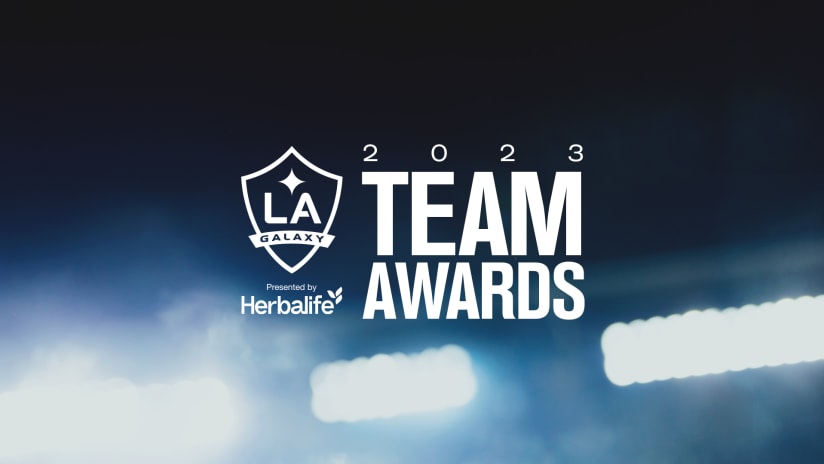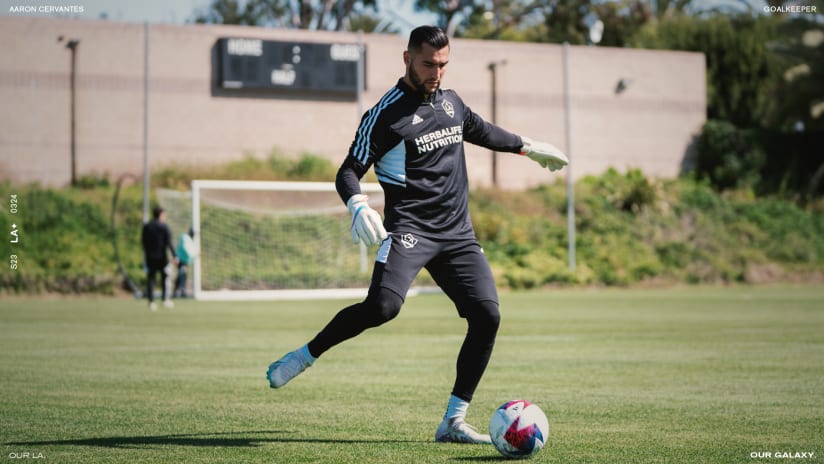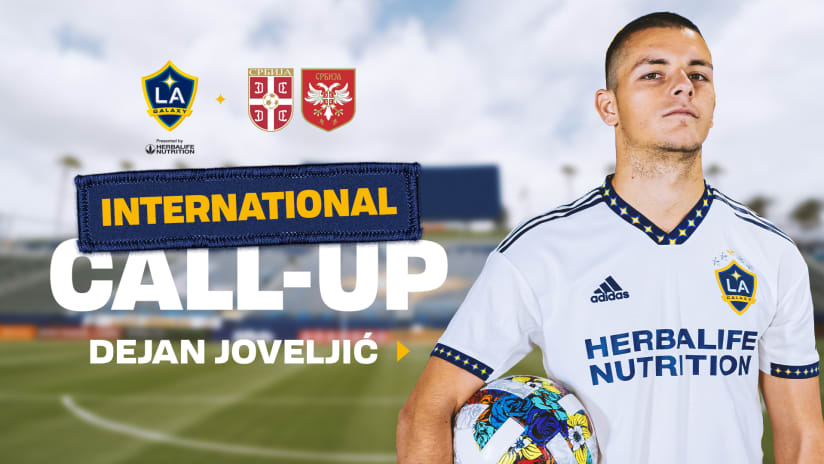The following is an excerpt from The Angeleno’s Guide to the Galaxy, the Galaxy’s collaboration with Howler Magazine.
Is there room for dynasties in Major League Soccer? Or is that exactly what the league is trying to avoid?
As MLS concludes its 19th sea- son, there have been two dominant teams: D.C. United in the early years and recently the Los Angeles Galaxy, both winning four championships to date.
As it happens, both teams have been coached at times by the very same person: Bruce Arena, who won two titles with D.C. in 1996 and 1997, and has won two more with the Galaxy in 2011 and 2012.
Like most coaches, Arena would not mind presiding over a dynasty. Some sports fans actually enjoy über-teams that win championships on almost an annual basis. Hordes of Japanese baseball fans worship the Tokyo Giants; many Italians seem to accept Juventus and the mysterious 89th-minute calls that referees have produced in its favor over the decades; there are the Lakers, the Bulls, the Cowboys, the 49ers; and bless their masochistic hearts, many baseball fans have flocked to stadiums to watch the Yankees brutalize the home team. Go figure.
Major League Soccer began with a collectivist single-entity ownership, which has continued under Commissioner Don Garber. The fear of free spending is associated with the Curse of the Cosmos, still one of the great soccer brands in the world, dating back to Pelé and other international stars, most past their prime, who dominated the North American Soccer League in the late 1970s only to go belly up in 1985. MLS would just as soon avoid that.
“I certainly subscribe more to the NFL’s approach to parity than I do perhaps to the structure of the English Premier League, where for the most part only a handful of clubs really have a chance of winning each year,” Garber, who once worked for the NFL, said in 2010.
Still, two different MLS teams have managed to win four titles, each within a decade. Does that qualify D.C. United and the current Galaxy as dynasties?
“I think that’s a bit of a reach,” said Arena, when I reached him on the phone.
In the name of journalistic integrity, I must note that I get a kick out of Bruce Arena, having covered his two older brothers, Paul and Mike, when they were quarterbacks at Carey High in Franklin Square, Long Island, back in the day. Their kid brother became a soccer keeper in the autumn, a star lacrosse player in the spring. I can interpret Arena’s Italo -Brooklyn-Lawn Guyland accent for my soccer-writer pals, and I totally get his sarcastic approach to the media. When Arena begins to answer a question with the dagger-word “Obviously...” I laugh out loud. Sounds like home to me.
Was it good for MLS to have D.C. United (with predominately Latino stars) dominate the first wave of MLS, and is it good for the Galaxy (with predominantly Anglophone stars like Beckham, Donovan, and Keane) to win multiple titles recently?
“I think he is the defining figure in American soccer in the last quarter of a century, if you include his great success at UVA,” Doug Logan, the first commissioner of MLS, wrote in an e-mail, refer-ring to Arena’s previous stint at the University of Virginia.
Logan admires Arena even if he sometimes needed to discipline or muzzle him. They could laugh about it later. The first commissioner said Arena “intimidates theatrically.” With LA, he has presided over the most scrutinized locker room in league history, and he “has shown his dominance over all the slick imports with fancy résumés.”
Arena downplays the concept of dynasties partially because he chafes at the ever-shifting payroll rules of MLS. Still trying to avoid a Cosmos-like reliance on high-paid stars, MLS has come around to a somewhat more competitive model of ownership.
Having struggled in my career to explain the infield fly rule in baseball, pass interference in football, or salary caps in various leagues, I will not even attempt to parse the rules about signing players in MLS. I will note that the league allowed David Beckham to perform his missionary work in Southern California, purely out of his love of the game, and is now allowing American stars like Clint Dempsey and Michael Bradley to come back from Europe for gigantic salaries based on arcane exemptions.
When I spoke to Arena, his comments sizzled on this topic. Later, when I read Steven Goff’s report that Arena had been trying to sign Sacha Kljestan from Anderlecht, only to have the deal fall through somewhere in the league hierarchy, it made sense. Arena sizzled some more when he saw Chicago try to sign Jermaine Jones only to have the German-American player allocated to New England in something called a blind draw. Arena said he had never heard of that process.
The Galaxy’s ownership, AEG, has spent considerable money on star players, Arena said, but he added that when he and Kevin Payne were running D.C. United in the early days of the league, “It was a lot easier to put together a roster, a lot easier to get players.” The message: dynasties are tough to build.
“The league is confused about the direction it’s going,” Arena said. “It’s a vicious cycle.” The league’s desire for parity, he suggested, came at the expense of clubs that know how to spend their money wisely. “Look at D.C. United,” he says of his first team. “Last year it had one of the worst records in the history of the league, and this year it’s doing well. We’re so focused on competitive balance.”
And if you manage to engineer a team that might be capable of becoming a dynasty, there are other forces ready to pull it apart, particularly the financial appeal of the rich European leagues, combined with the insistence by national team coach Jurgen Klinsmann that emerging American internationals fight their way onto Champions League teams. The next young star to transfer will be DeAndre Yedlin of Seattle, who made an impression in the recent World Cup and has been signed for autumn delivery by Tottenham Hotspur.
Arena thinks it’s a good move for the player, but he does not agree with Klinsmann’s dictate that players go overseas. “We’d be stronger if we built a base out of domestic players,” he said, adding, “Also, I don’t agree with foreign players becoming citizens. We need to develop them here.” This seems to be a criticism of Klinsmann for using five German-born players with an American parent in the World Cup.
For all the measures designed to check spending and keep any club from dynastic dominance, teams have begun to follow the Designated Player model pioneered by LA. In addition to Seattle and Toronto, New York has signed a number of high-profile players, including Thierry Henry, Orlando will begin next season with Kaka in the midfield, and even New England, long one of the league’s most frugal teams, recently wrote a big check for Jermaine Jones. New York City FC has already acquired David Villa and Frank Lampard.
Speaking of NYCFC, what does Arena think of a team owned by Manchester City and the Yankees joining MLS in 2015? “I think it will create more chaos,” he said, predicting that the use of Yankee Stadium will be, in his words, a disaster: “You’re talking about one of the most famous sports stadiums in the world. The Yankees just lost most of their pitching staff to injuries. Can you imagine what it will be like if they have to rebuild the pitching mound once a week?”

Bruce Arena (left) and Landon Donovan hoist the 2011 Western Conference trophy. The Galaxy has played in a record eight MLS Cups, three more than D.C. United. The clubs are tied with a league-leading four Supporters’ Shields apiece.
Soccer in the United States has always had to find space within a larger sports landscape. The Galaxy plays in its own stadium, the more modest StubHub Center in Carson, but that too comes with challenges. “You have the Lakers and now they are the weak sister,” said Arena. “You’ve got the Dodgers with Yasiel Puig and the best pitching staff in baseball. Down the road you have the Angels, another powerful team. You’ve got USC and UCLA. The Kings are Stanley Cup winners. This is a city of champions.”
Going into September, the Galaxy was drawing an average of 20,721 fans per home game, down 6 per- cent from 2013, and down from the franchise high of 26,009 in 2008, during the Beckham years. That era ended gloriously with two straight MLS Cups in 2011 and 2012. Beck- ham worked hard in the last final before Arena paid him the tribute of an 89th minute exit in front of the home fans. Beckham drew fans everywhere, appeared at clinics, chatted up the media, and his talented right foot and his glamor were good for the league. Robbie Keane followed, and the Galaxy will have another DP spot available once Landon Donovan retires at the end of 2014.
But Arena also wants to build the Galaxy from the bottom up, by accumulating young players barely out of high school. He counts four homegrown players on the 30-player roster, including Gyasi Zardes from nearby Hawthorne, California, who has been a starter for most of 2014, before turning 23. Arena is also high on Bradford Jamieson IV, a willowy forward from Los Angeles—not yet 18— who plays mostly for the Galaxy II squad but has already assisted on a goal for the senior team. “He is going to be a good one,” Arena said.
MLS has survived two seasons longer than the old NASL did. Jamieson was born two days before the Galaxy lost to D.C. in the first MLS Cup. The league’s average attendance now ranks in the top ten professional soccer divisions worldwide, reaching a peak average of 18,807 fans per game in 2012, Beckham’s last year. Going into September, the league was averaging 18,948, partially because of the 40,000-plus crowds in Seattle, the great downtown success story, which took a play from LA’s book by signing Dempsey andsetahighbarofitsowninthe form of record attendance figures.
The league was good enough for Beckham to strut his brand, good enough to keep Landon Donovan home, good enough to keep Bruce Arena busy agitating. Now Ameri- can soccer tries to capitalize on the booster rocket that was the highly popular World Cup in Brazil.
Asked again if the Galaxy were a dynasty, Arena said, “We want to be one of the elite teams.” Obviously.
George Vecsey is the author of Eight World Cups: My Journey through the Beauty and Dark Side of Soccer, published by Holt/Times Books in 2014. He is a contributing sports columnist for the New York Times and issues his own web site, georgevecsey.com.




